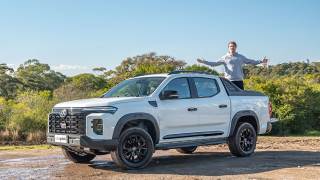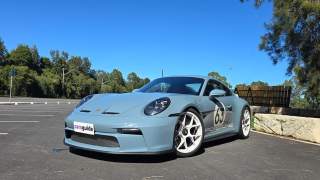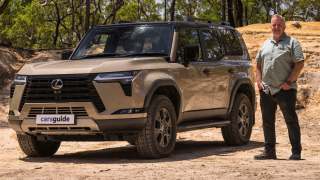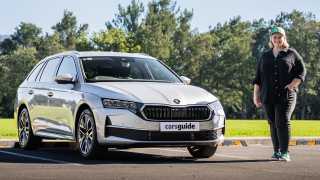
"Toyota is not anti EV": Japanese giant claps back at haters in Australia, but says it won't be dumping diesels anytime soon

Toyota says it has been unfairly tagged as 'anti EV', insisting electric vehicles will play a role in its plan for reducing its carbon footprint with its "multi-pathway" strategy.
The Japanese giant has been targeted by punters and organisations alike, including Greenpeace who accused it of "stalling on climate action", for its slow uptake on electric vehicles and its continued rollout of diesel engines in vehicles like the Prado, LandCruiser 300 Series, HiLux and 70 Series.
But Toyota will soon have an electric vehicle in Australia, in the shape of the bZ4x, with the brand insisting it will show haters that its believes in a BEV future, just not exclusively.
Read more about Toyota
- "It sends a powerful message": Toyota says HiLux, Ford Ranger and Isuzu D-Max's diesel dominance in 2023 proves it is right on electric vehicles in Australia
- Too late for a V8? Toyota says it won't reopen LandCruiser 70 Series' order books until "at least" 2025 as V8-troubling fuel-efficiency standards loom
- Toyota hydrogen cars you can buy in 2025? Toyota Mirai, Crown FCEV a possibility for Australia
Instead, Toyota is backing what it calls a "multi-pathway" strategy that will see BEVs, hybrids, plug-in hybrids and possibly hydrogen fuel cell vehicles all mix with regular internal combustion vehicles.
"I'm excited because it sends a clear message that you know what? Toyota's not anti-EV. We're actually not. And we want to play in that market. We want to be part of it. We're excited by it," says Toyota Australia's VP of Sales and Marketing, Sean Hanley.
"We just don't see it as the golden bullet or the single golden bullet towards carbon neutrality. The multi-pathway is still our strategy, but we're excited to be coming into the BEV market. We know it plays a role."
Toyota Australia's argument is that, until a hybrid, plug-in hybrid or BEV can deliver the capability of a diesel-powered ute or 4WD, it has an obligation to its customers to continue supplying them.
It points to the 2023 sales results, in which the top-three selling vehicles were all diesel-powered utes, and tallied a combined 155,000 sales, as proof its strategy is the right one.
"The market determines reality, not car companies. It sends a powerful message that Australian consumers want the capability. The job of the manufacturers is to bring that capability with a reduced carbon footprint," Mr Hanley says.
"It's incumbent on manufacturers to bring a vehicle with capability that can deliver and that will be desirable. That's our job. And you know what? We have a social and community responsibility to do that.
"And that's why we talk about Fuel Emission Standards and multi pathway. Some interpret it as Toyota being anti-BEV. No, we're not. We are just being real. We're being honest with the market and the position."
The Albanese government had committed to beginning the process to introduce fuel efficiency standards in Australia by the end of 2023, though that timeline has now blown out to 2024.
Fuel efficiency standards seek to force carmakers to stack their fleets with low- or zero-emission vehicles, as well as the most efficient petrol and diesels, by capping brand-wide emissions, and even potentially punishing carmakers who exceed it.










Comments